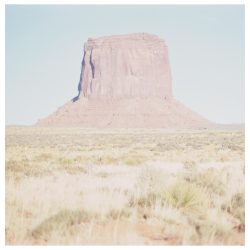
 It took precisely two songs on this latest release from the estimable GO before I was convinced that this would be their strongest record so far. I was right; though these two songs are a brilliant introduction to the record, the other songs all have their merits but let’s start at the top. Ontological Intercourse announces the record with a curlicue of feedback before the guitars proper open with a ringing tone and proceed to cycle and tag like a frisky puppies – they create the kind of musical landscape that Steve Gunn or William Tyler have been painting, the literary lyrics perfectly at home in these surroundings and the matter of fact delivery by Dylan Sharp roots them in the every day. It’s an opening that sets ear hairs to erect.
It took precisely two songs on this latest release from the estimable GO before I was convinced that this would be their strongest record so far. I was right; though these two songs are a brilliant introduction to the record, the other songs all have their merits but let’s start at the top. Ontological Intercourse announces the record with a curlicue of feedback before the guitars proper open with a ringing tone and proceed to cycle and tag like a frisky puppies – they create the kind of musical landscape that Steve Gunn or William Tyler have been painting, the literary lyrics perfectly at home in these surroundings and the matter of fact delivery by Dylan Sharp roots them in the every day. It’s an opening that sets ear hairs to erect.
Keep listening and Landscape Painter arrives; again the guitar lines are knitted into each other and this time the vocals of Carrie Keith add yet another layer. The relaxed pace opening up vistas, when Sharp sings ‘what do you do with cobalt blue pouring out of the skies’ in my mind the huge desert landscapes open up, in bright primary colours. The brushstrokes of guitar filling the canvas with texture and colour, again the subject matter (this time Brueghel – the elder) only comes to surface after repeated listens, and believe me you’ll want to repeat this song over and over.
There’s depth at every turn, depth worn lightly – the loping gait of Slow Realization pushes it toward a kind of Johnny Cash song, but Johnny was more visceral and that comes with the Krautrock pulse of Sally Rose. With Carrie Keith on lead vocal it mixes the sweet and sour perfectly with the vocals following the lead guitar and with spiky sea urchins spinning along underneath puncturing the prettiness. The Primacy of Love uses a different approach, emptying out the landscape allowing the vocals space to engrave the words, like the wind shaping arroyos.
This record completes their metamorphosis from the brash punk sounds of Dim Light to a band that can fold complex lyrical ideas into spacious cosmic country songs. They have a mastery of what they do and a control that allows them to continue to explore and always return to an aesthetic that has always been accessible. Typical of this is the closing Second Decade, a self-reflective song about playing in a band for more than ten years and using characters from Samuel Beckett plays as metaphors: it sounds dry on paper, in your ears it will tickle and pull, the guitars will crawl into your brain and slither around, as they sing, ‘the music we’re making here, well that’s the only thing that’s real’.
Summary
“We have to call it Country because it’s bigger than a work of art”


